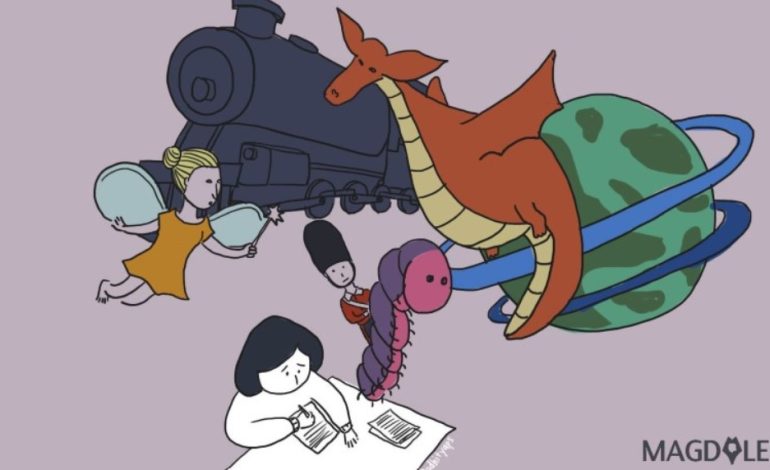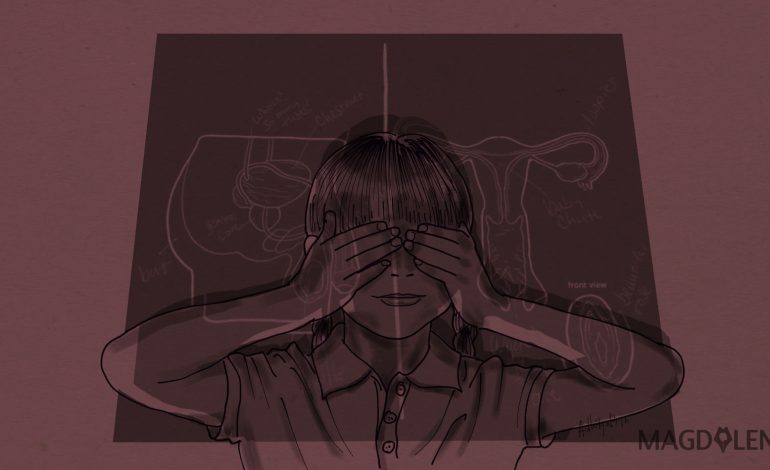Living in Fandom

There was a Line comic strip charting a woman’s crushes throughout the age: classmate in childhood, senior in middle school, K-pop idol in college, and superhero in adulthood. The same thing happened to me. After my first love at Year 6, crush with a senior in high school, infatuation with J-pop and K-pop singer BoA in university, on my 35th birthday I found out that my dream lover was Supergirl.
In the TV show, adorkable Kara Danvers/Zor-El works at media conglomerate CatCo, and during the first season Supergirl is a partly superhero action, partly office comedy. The show is significantly lighter, more optimistic, and more entertaining than other DC Comics’ TV series and motion pictures. A political commentator might describe it as “Clintonian-Obaman”, as some episodes have titles like “Stronger Together” and “Better Angels”. One executive producer even claimed that Barack Obama is an inspiration for Kara’s optimism and idealism.
I am always attracted to strong female characters. I bought the Indonesian edition of Wonder Woman comics in early 1990s, along with Batman and Punisher series. I did not see Buffy or Xena, but followed Charmed and Gilmore Girls. In university, I delighted in the abundance of female protagonists in anime, from policewomen in You’re Under Arrest and Ghost in the Shell to diligent girls in Hayao Miyazaki’s films.
What does a man like me like about the cyborg cop, the foodie cop, and the squabbling sisters? Ideal girlfriends? A counterbalance to the masculine male heroes? A glimpse of the inner life of women otherwise I don’t really know or understand? For me anime and East Asian films provided the representation I hardly found in Western media (or even the Indonesian media), and it is still true for many people today.
In late 2000s, it became harder to share my pop culture interests with others. People I knew didn’t seem interested in any of the music genre or media franchise I was I into. They watched whatever movie was playing, merely for socializing and for keeping up with the in-crowd.
I also knew that several people liked a particular anime or Japanese drama series, but were not interested to talk about it in depth. Some even played down their interest by saying “Actually I’m too busy to follow it now,” or “Oh no, I just watched it to kill boredom, that’s all.” I am still figuring out if they didn’t like me enough, or they didn’t want to be seen as a geek.
On the other hand, I believed that I would have been more likeable had I been more masculine and less nerdy. I watched Entourage, bromance movies, edgy documentaries, and political satires. Of course, anything you enjoy is less fun when you’ve got no one to share the love with, including when your Facebook status on what you liked received no like.
Getting social on Twitter really surprised me and expanded my horizon. There are so many women who are proud of their fandoms – Sherlock, Korean pop and drama, TV series like Orange is the New Black and Master of None, and yes, Supergirl. There are so many women who are proudly gamers and comic readers and movie buffs, often confirming how mainstream and vanilla my taste is.
I also learned that it is very fine to like cute cartoon characters like Snoopy. It’s okay to enjoy women-led series like New Girl and Madam Secretary. And yes, it’s fine to shop at a toy store in your mid-30s.
The first reason I wanted to watch Wonder Woman was when I heard how Warner Bros under-marketed it, compared to how Batman Versus Superman and Suicide Squad were marketed. I wanted to help it succeed, and for the first time I watched a movie in cinema by myself. After the ending credits rolled, I’ve known what it’s like to attend a born-again Christian revival church and experience ecstasy.

Many women said they cried with joy when watching Wonder Woman, feeling the power fantasy, the more optimistic and more feminist messages (compared to other superhero movies), and the directional difference to other blockbusters (no male gaze!). I watched the movie for the second time with an ex-coworker, and to my delight she raved about its importance afterward. Some feminists watched it with their children and said they enjoyed it, even when normally they’re not into superhero movies.
And so, my fandom on Wonder Woman began, amplified by how her Lego keyring accompanied me across Europe, how Supergirl promoted the movie, and how her myth is linked to my childhood passion of Greek mythology.
There are two complications regarding fandom: First, how do you associate and differentiate the character and the actor? How do you cope when the actor doesn’t fit the ideal of the character, and when other people don’t like the actor?
Second, how do you handle criticism of the franchise? How do you cope when you hear minorities saying that they found something from the movie or the franchise disturbing for them, or if the franchise is not feminist?
I drew a line regarding Wonder Woman the movie: I accept the criticism that its plot was patchy and predictable, and that it didn’t promote the prominence of women of color enough. But I don’t accept the criticism that it’s capitalistic, or not radical enough, or that it’s invalid since Gal Gadot was an Israeli soldier and is not a feminist. Like Andi Zeislerwrote, the movie is not a referendum on female directors or feminism.
Now I am happy to spend book money on Supergirl and Wonder Woman comics. Perhaps like many others, I want to cheer myself up in this troubling time. Maybe I am tired of buying books by writers deemed problematic later, like Sophia Amoruso and Chimamanda Ngozi Adichie.
Or maybe like our polytheist ancestors, these superheroes are deities for us to choose from. I know I’ve chosen mine.
Read Mario’s piece on sex, race and fetishizing.






















